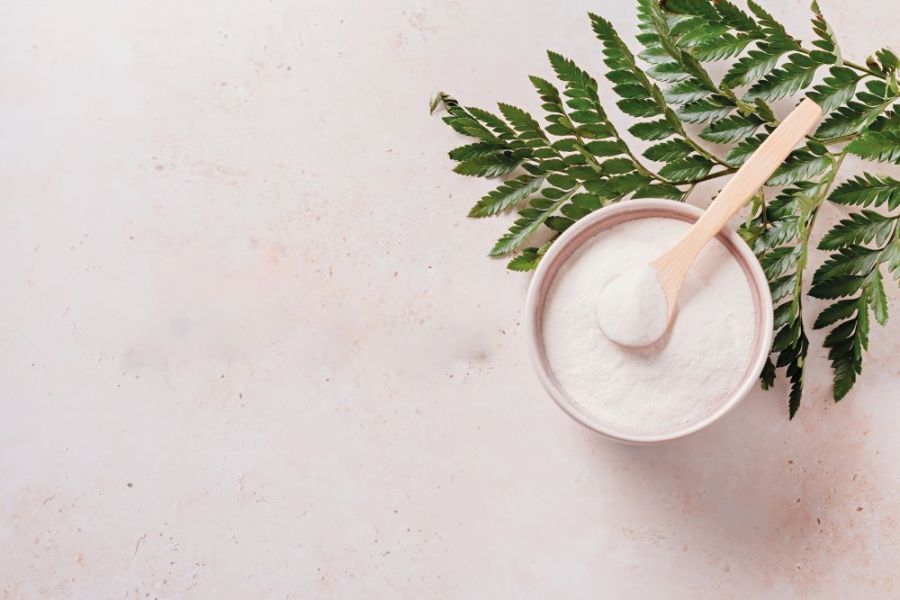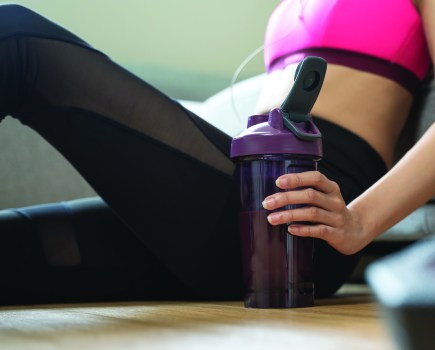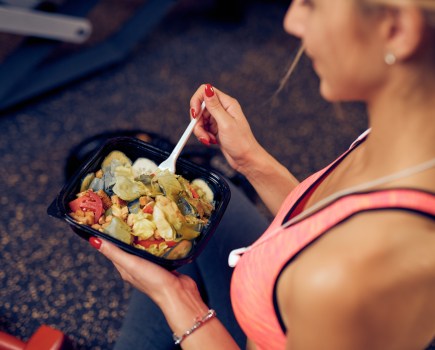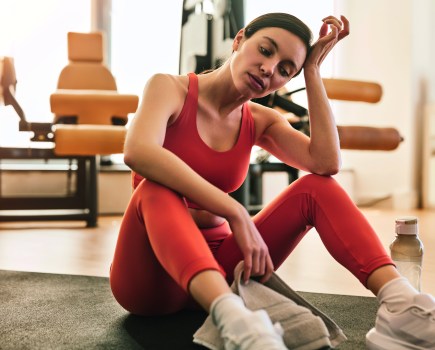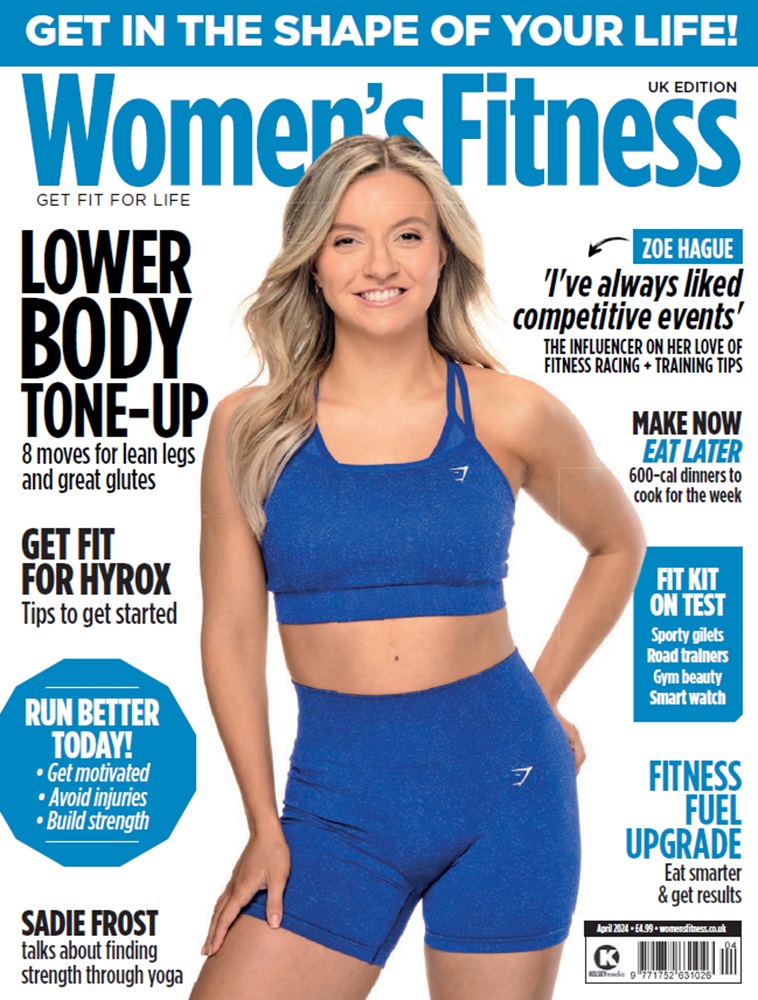Collagen is gaining in popularity as both a sports and a beauty supplement, but what are the benefits for women who lead an active lifestyle? Nutritionist Christine Bailey has the lowdown on the benefits of collagen for fitness plus the best sources…
Healthier skin, hardy nails and joints, stronger bones… it seems that everyone is talking about the benefits of collagen. It sounds great, especially if you’re prone to injury issues, but is it all just hype or does it live up to expectations?
Related: 5 trending sports supplements for women 2022
Collagen is the body’s most abundant structural protein. This means it acts like glue that holds your body together. More specifically, it acts as a building block for your bones, muscles, skin, joints and connective tissue. Collagen makes up more than one-third of your total protein, and is composed of a number of amino acids including, primarily, glycine, proline and hydroxyproline.
There are 28 types of collagen and they vary in amount within our body’s tissues. However, 80-90 per cent of the collagen in the body consists of Types I, II, and III:
- Type I, which is most abundant, is distributed in bones, ligaments and skin.
- Type II collagen is distributed in cartilage, tendons and ligaments.
- Finally, type III collagen is most prevalent in skin, blood vessels and internal organs.
Related: Sports supplements: 5 reasons why athletes love CBD
Best collagen food sources
Being a large compound, collagen can’t be absorbed in its whole form by the body. The protein must be broken down during the digestive process before being absorbed into the bloodstream. This is why collagen supplements are hydrolysed, meaning that collagen’s long amino acid chains are broken down into peptides consisting of just two or three amino acids. This makes it more bioavailable.
There are, however, several ways to increase collagen production in addition to taking supplements. Making sure you include sufficient protein in your diet is important, but there are also food sources of collagen. These include bone broth, the skin of pork, salmon and chicken, and organ meats such as liver and kidneys.
Gelatin and collagen are frequently confused with each other – animal gelatin is made from collagen but eating gummy sweets is probably not the healthiest way of getting collagen. You also need vitamin C to support collagen synthesis in the body. You can get this by including more vegetables, citrus fruits and berries in your diet.
Collagen from food or supplements can act as the building block for production of collagen in the body. The peptides also bind to the receptors on the fibroblasts that produce collagen and stimulate those fibroblasts to boost their collagen production. They may also act as antioxidants, helping to protect existing collagen in the body from damage.
Related: The Eatwell Plate: how to eat a balanced diet
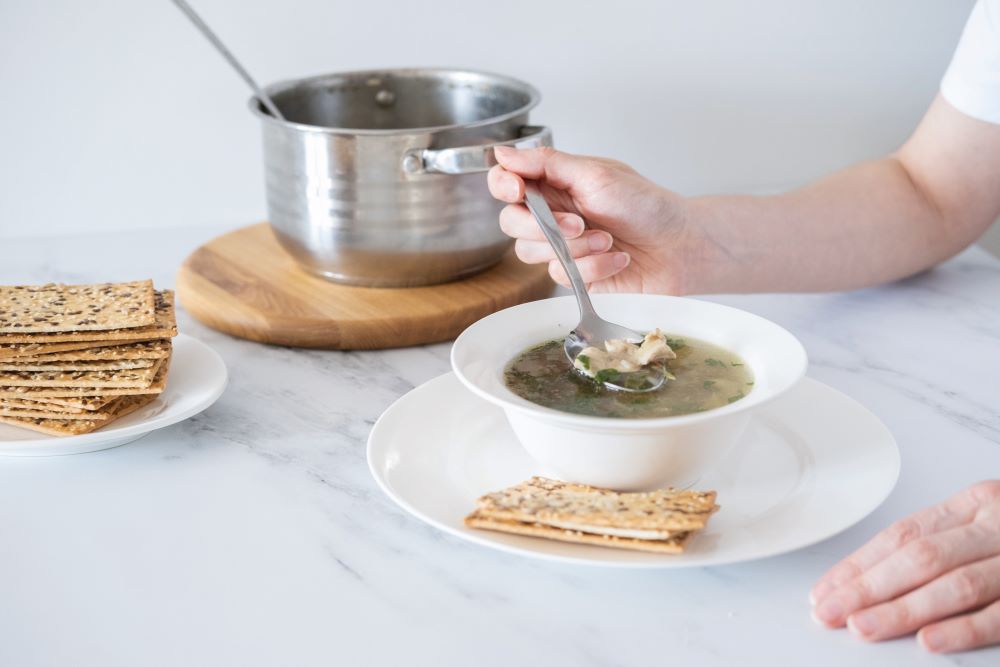
Benefits of collagen for fitness
Collagen has a range of benefits related to fitness. Several studies have shown collagen supplements help reduce exercise-related joint pain, reduce the risk of deterioration, and improve joint function. As a weakened extracellular matrix often causes musculoskeletal injuries, supplementing with collagen and/or gelatin to strengthen this may be helpful.
One study showed that adding 15g gelatin to vitamin C about one hour before training improves collagen synthesis, which may be helpful in injury prevention. What is not clear is whether collagen can speed up recovery after injury or whether collagen improves performance.
If you’re concerned about arthritis, longer-term supplementation appears beneficial. One study on osteoarthritis showed that 10g of collagen daily improved cartilage thickness in the knee and decreased pain. A special form of Type II collagen has also been shown to reduce inflammation and pain associated with osteoarthritis and rheumatoid arthritis.
Related: Best joint supplements for pain, stiffness & inflammation
Collagen benefits for bone & skin health
The benefits of collagen don’t stop with fitness & joint health. Here are other ways in which collagen can boost the body:
- Bone health: Collagen forms the major protein in our bones and, since levels decline with age, taking supplementation may be a useful strategy. Certainly, studies have found supplements can improve bone density and prevent bone loss. Even just taking 5g collagen peptides daily appears to increase bone mineral density, particularly for women who are post-menopausal.
- Skin health: Collagen makes up the bulk of your skin, but as early as our 20s, the amount we produce declines. By the time we get to 40, we will have lost around a third of our collagen, and the wrinkles and sagging become more obvious. Taking collagen supplements has been found to stimulate the production of more collagen, improving skin elasticity, hydration and collagen density.
- Other potential benefits: There is limited research to show collagen improves muscle mass, especially when compared to protein powder, and this is probably because collagen lacks many essential amino acids. However, other benefits include digestive health, improving wound healing and strengthening nails.
Best collagen supplements
There is much debate about whether it matters what type of collagen you consume. This is because it is the actual amino acids present in collagen that impacts collagen synthesis in the body. So, the quality of the collagen you ingest is probably more important than how many types of collagen it contains.
One exception is the use of a special form of Type II collagen for joint health and arthritis. Known as undenatured type II collagen (UC-II), this type of collagen hasn’t been broken down into peptides and, when consumed, is able to modulate immune reactions that cause inflammation and joint pain. Studies have shown this form of collagen prevents the immune system from injuring its joint cartilage, while promoting cartilage repair and regeneration. For osteoarthritis and rheumatoid arthritis, this form of collagen may be preferable.
When choosing a supplement consider the source and form. Does it state that it’s hydrolysed or in the form of peptides? Most products are either bovine- or marine-based, so check whether it’s from grass-fed animals or sustainable fish stocks. Check for fillers, flavourings or sweeteners, and note that vegan supplements do not contain collagen but instead contain nutrients that may support collagen production.
Lastly, remember that collagen supplements are not a substitute for focusing on dietary and lifestyle factors that affect collagen in the body. For example, a high sugar intake, smoking and sun exposure can adversely affect collagen integrity, so be mindful of lifestyle factors as well.
Below, we’ve rounded up the best collagen supplements for your skin, joints, bones and more, so you can reap those fitness benefits…
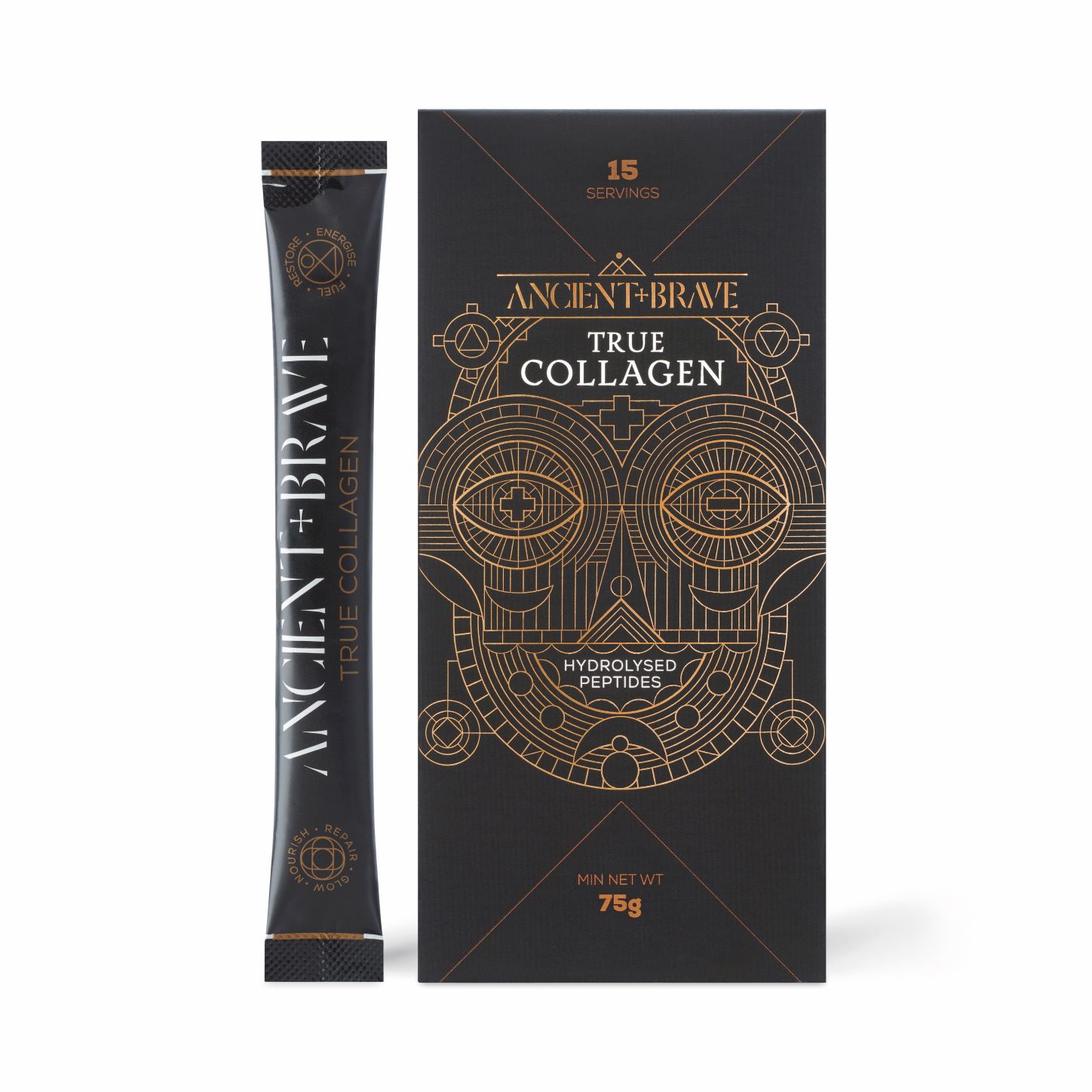
Best collagen for your skin: Ancient+Brave True Collagen Sachets (£18 for 15 sachets)
A handy powder sachet with 5g collagen per pouch. Featuring hydrolysed Type I, bovine-sourced collagen that you can add to workout smoothies or sprinkle on food. It’s 100 per cent natural and dairy-free.
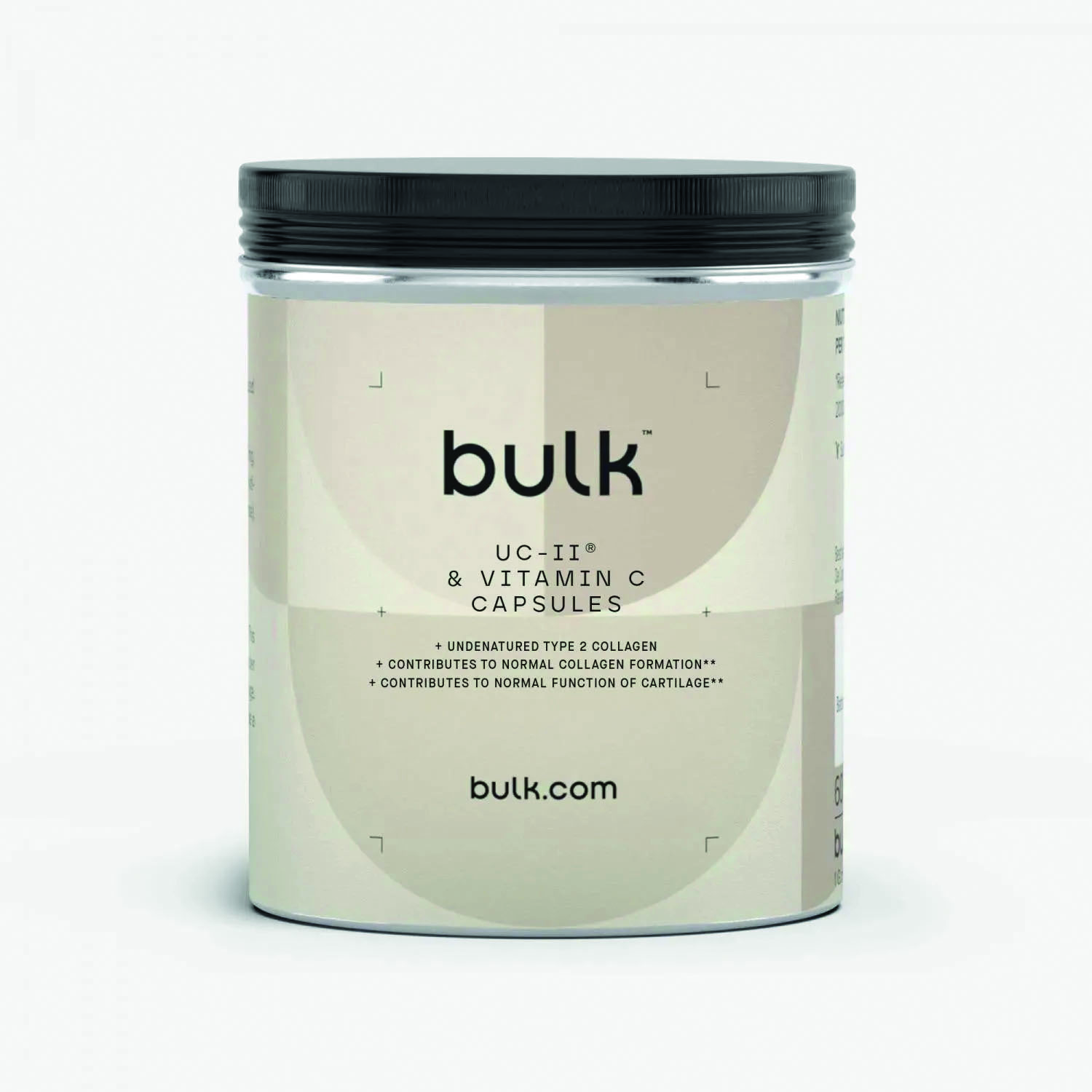
Best collagen for your joints: Bulk UC-II & Vitamin C Capsules (£24.99)
Contains undenatured type 2 collagen, plus joint-supportive nutrients including 40mg of vitamin C per capsule, which contribute to the normal function of cartilage.
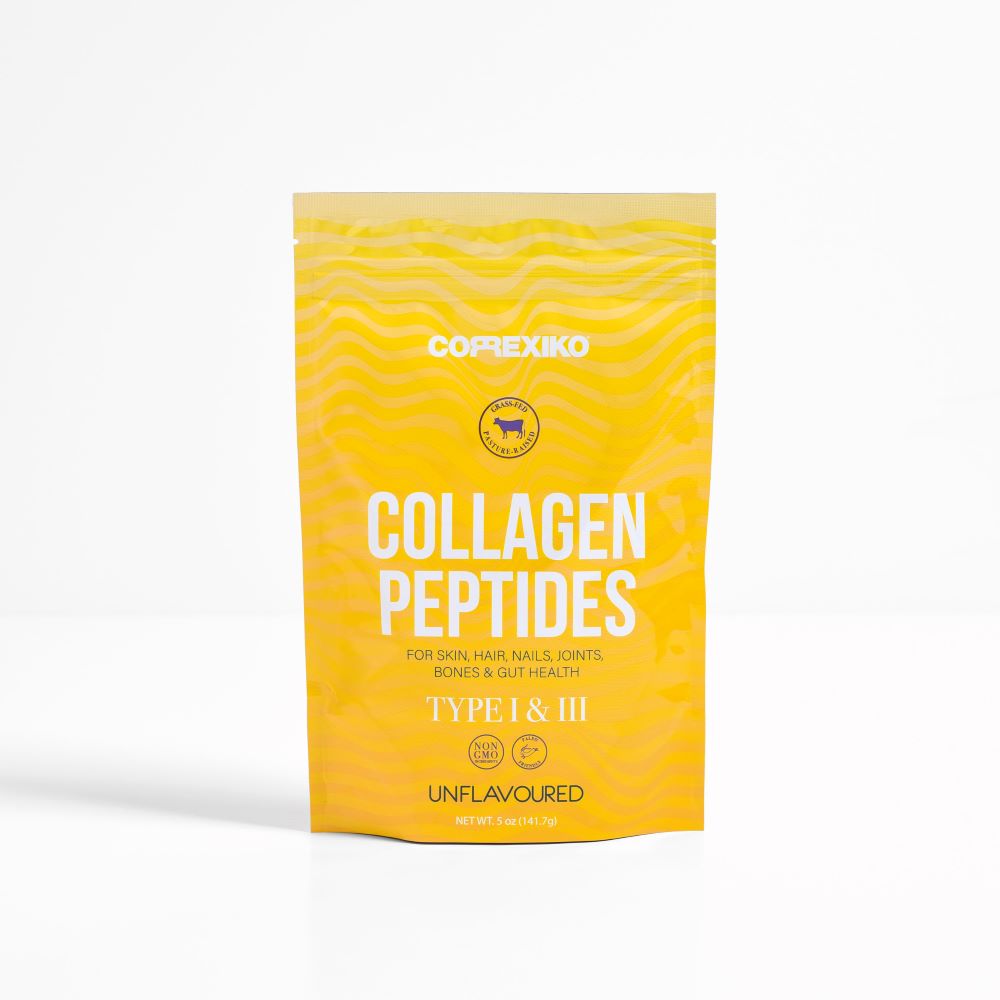
Best collagen for your bones: Correxiko Collagen Peptides (£26.95 for a 45-day supply)
This powder contains Types I and II collagen. It goes through a double-hydrolysed process for maximum effectiveness and better absorption. A marine collagen option is also available.
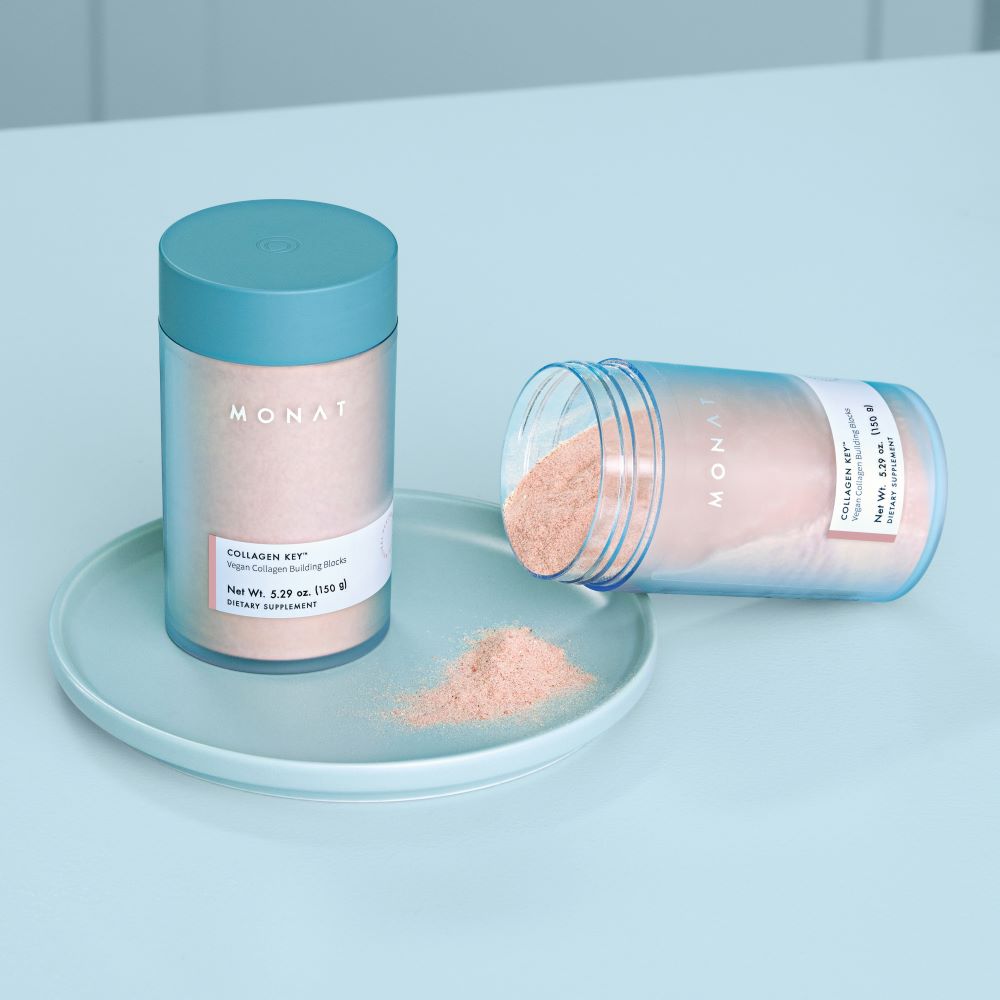
Best collagen for vegans: MONAT Collagen Key (£60 for 30 servings)
This all-in-one powder contains a vegan amino acid blend of glycine, L-proline, L-hydroxyproline and L-methionine, with vitamin C and B, resveratrol, silica and hyaluronic acid.

